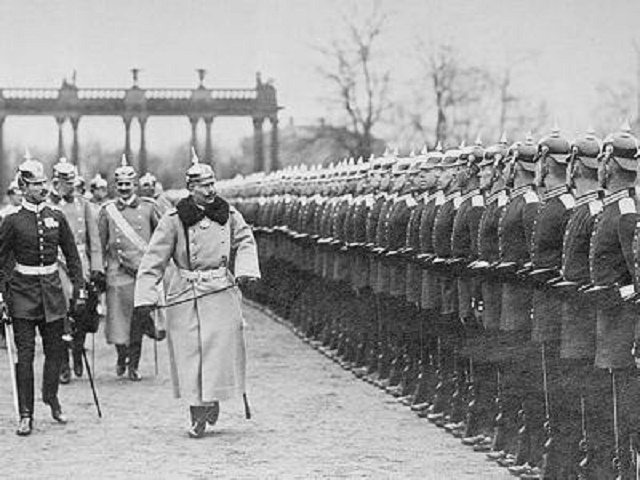Many feel that Germany was just as ruthless and nationalistic in WWI as they were in WWII, but not all agree with this sentiment. Some actually believe that their cause was more justified than it is commonly believed to be. Given the complexity of political relations at the time, it is difficult to say what precise role Germany had in the beginning of the conflict which ultimately led to WWI.
One of the reasons for this debate is that Kaiser Wilhelm II lent a large hand in the glorification of German nationalism. He glorified aggression and believed that his people were members of a superior race with a great destiny before them. Many feel that Wilhelm’s glorification of these ideas led to a widespread sense of entitlement in Germany, and that WWI was simply a precursor of what was to come. This, however, is not the only viewpoint. While there was doubtless a connection between the two World Wars, many feel that connection was not created until the harsh treatment Germans received in the formation of the Treaty of Versailles.
The other abounding viewpoint is that Germany was locked in an economic struggle against Great Britain, and that it was Britain’s international dominance against which they were fighting. Some feel that even Kaiser Wilhelm did not contribute much to this fight, and that it was rather Britain’s control over international markets that led the Germans to reinforce their military out of fear that Britain might soon attack. That is not to say, however, that people of this viewpoint are blaming Britain for WWI, the New Statesman reports.
In fact, the most common theory is that WWI was not started by anybody in particular. What started as a conflict between Serbia and the Austro-Hungarian Empire spread like wildfire when multiple nations felt that it was their duty to uphold their allegiances and join the war. Britain, was certainly not the cause as they did not join until the German invasion of Belgium. However, Germany cannot be blamed as they only joined in defense of their Austro-Hungarian allies.
The truth is that WWI was a complicated matter, and neither Germany nor anyone else should accept blame for the conflict. Every nation had their own stake in the war, and every nation involved suffered heavy losses. It would seem as if the blaming of Germany for WWI is a result of anti-German sentiment that arose following the Second World War, but this blame is misguided and does not appear to stem from any real education on the history of the First World War itself.
